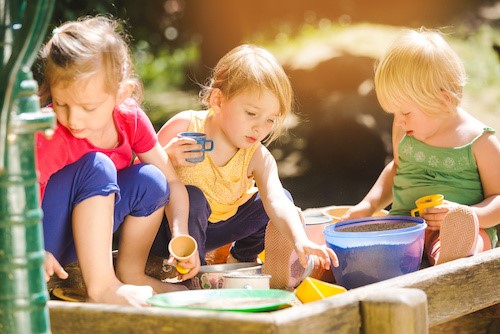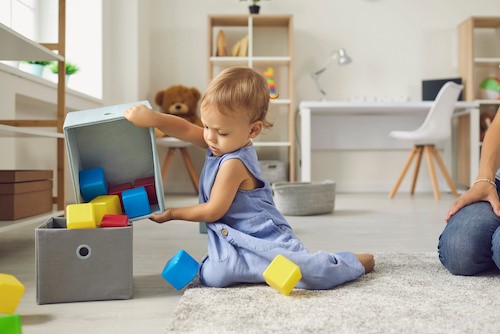How To Choose An Early Learning Facility For Your Child
As a parent, your first obligation in raising your kids is to ensure you enrol them in a suitable learning facility. The early stages in a child are critical. They set a foundation for your child's life-long character.

However, finding a suitable early learning facility for your child might be challenging if you don’t know what to look out for. Remember, they’ll spend most of their time in the facility, especially when you’re working full-time. It’s paramount that your child feels safe in the environment and gets a fulfilling experience at the facility you will choose. With that in mind, here are some factors that help you choose an early learning facility for your child:
1. Location
It would be best to choose an early learning facility near your home. You’ll feel at ease knowing your child is just a few metres or kilometres away, as opposed to them being miles away from you. In case there are emergencies in the learning facility, you can get there as quickly as possible if you are in proximity. Thus, finding a learning facility for your child near your location is in your best interest. On that note, if you live around Montessori, you may want to check out this early learning childcare centre in Toowoomba or similar ones.
The facility should also be in a safe neighbourhood where your child will be secure as they continue learning. You can consider its proximity to a police station or access to health centres. Before enrolling your child in the facility, you can assess the surrounding community. This way, you’ll have no worries concerning your child's safety.
2. Ratio Of Staff To Children
Another aspect you can’t afford to compromise is the staffing of a learning facility. The ratio of staff to children is essential as it helps you determine how often your child has access to their instructors. In their earlier stages, children need to be guided and instructed closely.
If there are more children than the attending staff, it might not be a good choice as your child won’t have enough interaction with their tutors. It can take a toll on their learning progress. But, with adequate staffing, your child will get individual attention, promoting an effective learning experience. That’s why it is best to find a facility with an excellent staff-to-children ratio.
3. Licensure And Credentials
It’s necessary to inquire about the facility's licensure. Most governments regulate early learning facilities and stipulated laws to measure the facility's level of compliance. If you take your child to a facility with no credentials, they might experience temporary closure once the law catches up with them. In the worst-case scenario, the facility may be permanently closed. You end up losing your money and disrupting your child’s learning process. As such, it’s essential to ask whether they have the necessary permits for operations.

4. Teaching Methods
Your child needs to get the most appropriate teaching style as it helps develop them for primary learning. As much as the curriculum controls the facility’s syllabus, it is best to ensure that your child will experience learning using practical techniques that are tailored to their needs.
For instance, you can compare the learning aids that a facility uses when teaching your child how to read. Some schools use the traditional reading-aloud teaching method, while others use fun games and learning aids to train your child.
5. Nutrition
It's hard for a child to concentrate if they’re not well-fed. Therefore, ask for the school menu and analyse the feeding program if they can cater to the nutritional needs of your child. Note that you typically pay a sum for the foods the facility serves. Thus, every meal should be balanced and nutritious enough to get your money’s worth.
Suppose your kids have food allergies. It’s essential to communicate that with the school and find out what alternatives they can offer for your child’s needs. Cleanliness is also paramount. The last thing you’d want is a sickly child due to untreated water or food contamination. Therefore, it’s necessary to go through the school's nutrition programme before choosing.
6. Hygiene Standards
A good facility must ensure they maintain excellent cleaning standards. Your child is susceptible to bacteria and viruses as they play, so you must guarantee that the facility maintains hygiene protocols. Also, check if the facility keeps its playing toys sanitised to avoid spreading germs. Other aspects that reflect excellent hygiene standards include the following:
- Frequent hand washing
- Proper sanitation in the washrooms
- Thorough washing and sweeping of the classrooms
- Sanitisation of door handles on school buses and classroom doors
If such measures are implemented, it’s a sign that the facility is concerned about your child’s health.
7. Amenities
The facility must provide state-of-the-art amenities for your child—for instance, a playground stuffed with equipment. As your child grows, playtime is vital as it helps strengthen their bones and develop interpersonal skills. It also helps expound brain activity, such as critical thinking. Thus, the facility should have adequate amenities to facilitate your child’s playtime.
It’s also necessary for the facility to be technologically equipped to handle your child’s learning process. With the world shifting to technology, it’s best for your child to be familiar with devices that can aid their learning, albeit parentally regulated.
Conclusion
Prioritising your child’s early learning experience is essential. For this reason, it’s vital to consider the best learning facility for your child’s needs, as it helps develop their creativity and prepare them for primary learning. The learning experience should be comfortable and seamless. It’s equally essential to check the facility before enrolling your child using the list of factors discussed above.